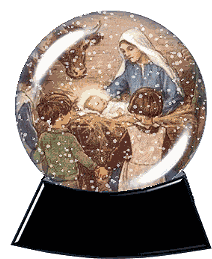The novel, the novel! Why do I set myself up like this? Why don't I just let it go?
I'm like a person who has had seventeen failed relationships, but keeps trying for more, keeps hoping for that one, elusive, "right" man who will change her life.
For more than a year now I've been trying to get someone in the publishing field interested in my novel about Harold Lloyd, The Glass Character. It occurred to me yesterday that I've been going about it all wrong. Why am I acting as if I've never been published before?
Here is a small sample of the reviews I got for my first two novels. This represents maybe ten per cent of them. Only one was strongly negative.
Reviews of Better than Life
(NeWest Press, 2003)
and Mallory (Turnstone
Press, 2005)
"Gunning manages to
illuminate that which is dark and secret with that which is rich and riotous in
colour. She is an author able to open up the world of a fractured but seeking
people and bring them into light, healing and hope." - Edmonton
"As Anderson-Dargatz
did with her town of Likely and Stephen Leacock did with Mariposa, Gunning
has created a fictional place that's recognizable to anyone who ever lived in a
small town. This delightful novel looks like a contender for the Leacock
Medal." - Vancouver
"Margaret Gunning
writes with uncanny grace and unflinching clarity about what it is to be a
young girl forgotten by the world. The ominous feeling that underscores much
of of the novel is remeniscent of the best work of another Canadian
author, Ann-Marie MacDonald, whose girl heroes seem to inhabit this same dark
world." - Montreal
"Her expressive turns
can spur shivers of pleasure. There is a contagious energy to Gunning's prose
which often - and accurately - delineates Mallory's intense emotional
improvisation, child-like perspicacity and surprisingly mature
realizations." - Globe and Mail
"Better Than Life is fiction at its
finest." - Edmonton
One of my editors phoned me after this outpouring and claimed it was "a miracle". She saw all this praise as some sort of supernatural event, not as the result of years of hard work, persistence, trudging along, heartbreak.
I sent out queries this time and did not even get responses, or else the response was no (a form letter, always) without even wanting to see the novel. The larger presses will not even consider submissions from the likes of me: you have to have an agent. The response from agents was even more miserable: nothing, or form letters, or even (the worst one yet) my own query letter back, in my stamped self-addressed envelope, with a rubber stamp on it that said LIST IS FULL.
In no case did anyone actually read my novel. It was dismissed out of hand.
I should have done it differently, but didn't even realize it until yesterday. I have two novels out already, for Christ's sake. I'm not a novice. I'm not starting at the beginning. Why can't I jump over some of those early, sieve-straining steps?
So I've started to. And nothing definite has happened yet, but the energy seems to have changed.
I will never, NEVER learn how to do this, how to hawk my wares. I love to write - somehow it has survived the wars - but after 30 years of attempts, I still can't seem to figure out the elaborate, paradoxical, ever-changing games I must play to get my writing noticed.
If it weren't for you, Harold, and my love for you, I would have given this up a long time ago.








































